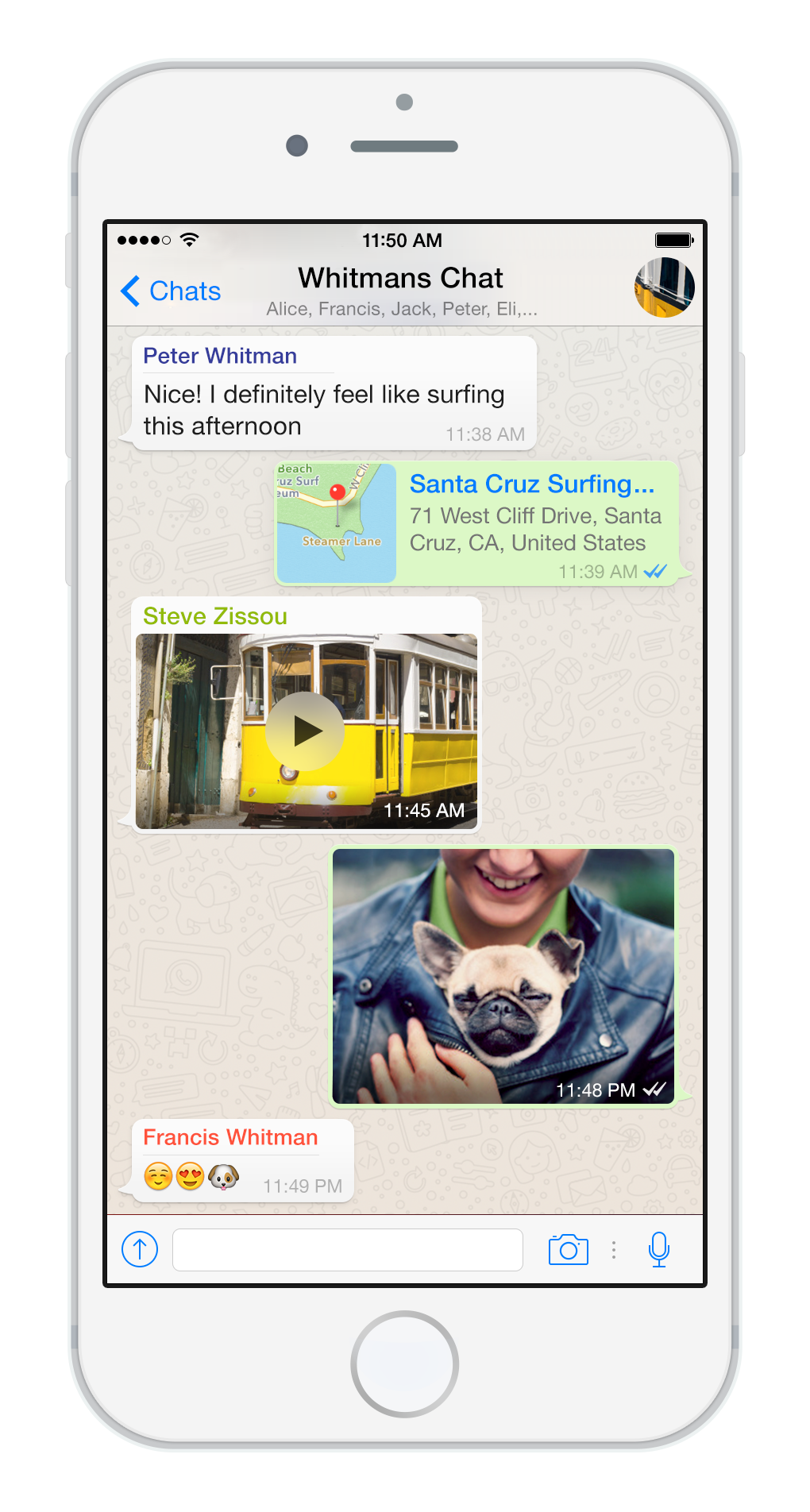Messenger Apps for Business: How to Use Chat for Marketing. WhatsApp, Facebook Messenger, and WeChat are among the most popular messenger apps. Facebook Messenger Direct messaging was originally incorporated into the main Facebook interface, but it has now become its own app: Facebook Messenger. Facebook itself describes Messenger as “the new social living room for the world, where people can hang out, share, chat, play games or buy things.” Facebook Messenger’s platform makes it a key app for business bots, with 100,000 monthly active bots currently in the system. A whopping 20 million Facebook Pages are active on Messenger and—including automated messages—people exchange 2 billion messages per month with businesses on Facebook Messenger. WeChat WeChat has more than 889 million monthly active users. WeChat features vary by region, but in most cases this chat app offers much more than just messaging, with services like WeChat Pay and WeChat Wallet combining with chatting and games to form an entire mobile ecosystem. Kik was one of the first to really embrace bots in messaging, and now encourages users to interact with bots individually or in groups for content and games. The platform offers video and text messaging and photo sharing. Chatbots According to Kik, brands using chatbots on the network see three to four times higher open rates for push notifications than the typical open rates for brand emails.

Mobile messaging is on the rise. More than 1.4 billion people used mobile messaging apps in 2016 according to eMarketer—an increase of almost 16 percent over 2015.
According to Nielsen’s Facebook Messaging Survey, 59 percent of people use messaging apps more now than they did two years ago, and 56 percent expect to use messaging even more over the next two years.
And in case you think messaging is only for chatting with friends, take note: while 59 percent of respondents to the Nielsen survey said they use messaging apps to connect with friends and family, 67 percent said they expect to use messaging more for communicating with businesses over the next two years.
Bonus: Download a free guide that reveals how to increase social media engagement with better audience research, sharper customer targeting, and Hootsuite’s easy-to-use social media software.
What is a messenger app?
Messenger apps allow users to message one another, either one-on-one or in groups. Messaging apps are also sometimes called chat apps. WhatsApp, Facebook Messenger, and WeChat are among the most popular messenger apps.
These apps are essentially a newer form of texting that uses the app’s interface and the internet to send the message, rather than traditional SMS services. It’s a way for people to stay in contact without incurring SMS charges, which can be prohibitively expensive in parts of the world where unlimited texting plans are not the norm. Some are standalone services (e.g. WhatsApp), whereas others are connected to a more traditional social network (e.g. Facebook Messenger and Instagram Direct).
Why should you use a messenger app for business?
Quite simply, your business should be using messenger apps because your customers are using them, and they expect to find you there.
According to Business Insider, the top four messaging apps now have a larger combined user base than do the top four social networks. And more than half of respondents to Nielsen’s Facebook Messaging Survey said they were more likely to shop with a business they could message directly.
Messaging is particularly important if you’re marketing to customers in the Asia-Pacific region, where more than half of all worldwide messaging app users can be found.
Messenger apps should also be on your radar as a key way for readers to share content via dark social—that is, through private channels that don’t register as social shares and don’t have a referral source attached.
The vast majority of online sharing—84 percent—now takes place on private channels like direct messaging, so even if you’re not yet using a messaging app to market your business, your readers are likely already using them to extend your content’s reach.
The top messenger apps for marketers
What’s the best messaging app for your business? That depends on who you want to reach and where in the world they live.
This largest of the mobile messaging apps has 1.2 billion monthly active users worldwide sending more than 50 billion messages every day. Less than a quarter of those users are in the United States; the app has much higher penetration rates in Asia, Europe, and South America.

WhatsApp communication is based on phone numbers, rather than friend connections, as the app was originally designed as a straight replacement for SMS texting. More recent features like video messaging and document sharing make the service more robust, and all messages sent through the app are encrypted for security.
Facebook Messenger
Direct messaging was originally incorporated into the main Facebook interface, but it has now become its own app: Facebook Messenger. It offers the same basic functionality as WhatsApp, but is designed for communication between people connected as Facebook friends, rather than using phone numbers. Facebook itself describes Messenger as “the new social living room for the world, where people can hang out, share, chat, play games or buy things.”
Facebook Messenger’s platform makes it a key app for business bots, with 100,000 monthly active bots currently in the system. A whopping 20 million Facebook Pages are active on Messenger and—including automated messages—people exchange 2 billion messages per month with businesses on Facebook…
COMMENTS